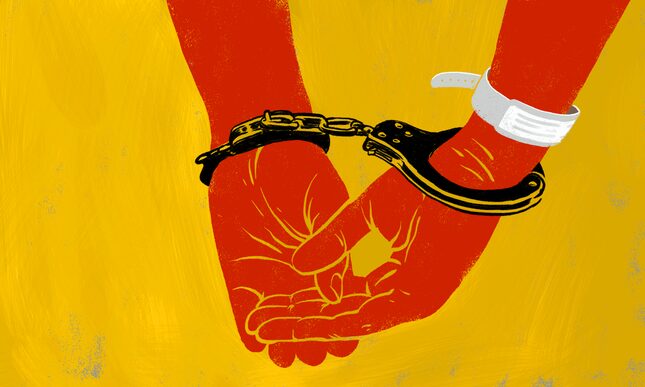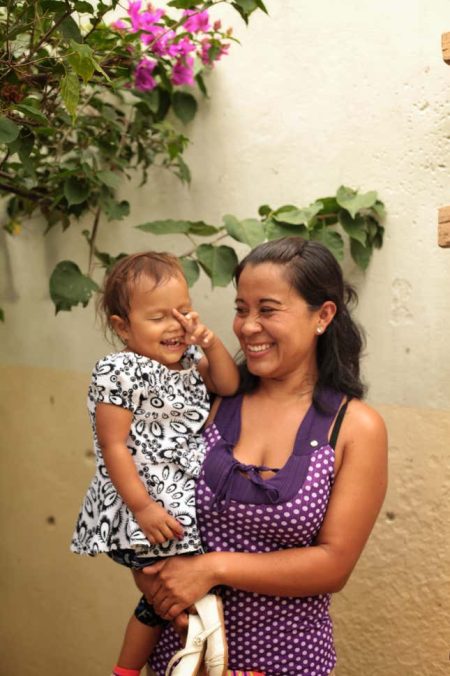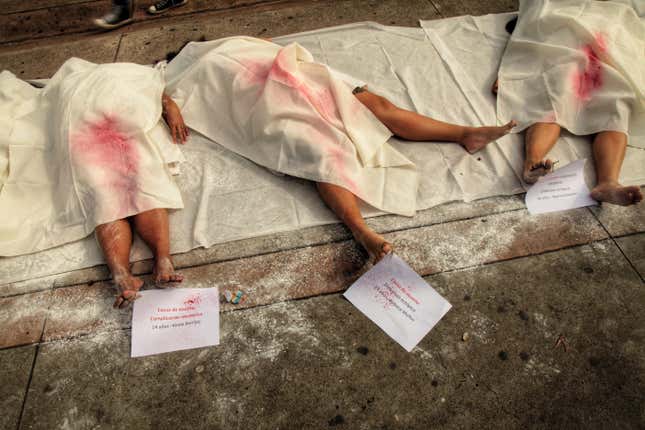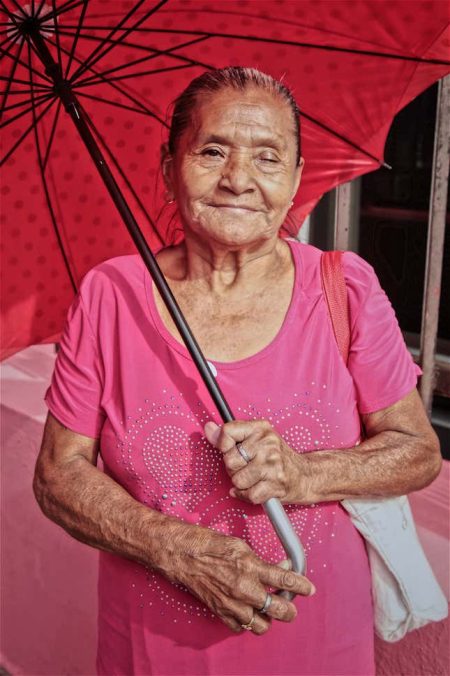Salvadoran Women Imprisoned for Abortion Speak Out Against Their Country's Draconian Laws
Latest
Illustration: Jim Cooke
SAN SALVADOR, EL SALVADOR—In 2007, Carmen Guadalupe Vásquez Aldana was raped. She was 18 years old at the time, working as a housekeeper, and suddenly pregnant.
Vásquez Aldana was born into a working-class family, and all she ever wanted was to earn enough money to support the child growing in her womb. She worked at a private home, and frequently stayed overnight, often sleeping on the floor. One night, about a month before she was due to give birth, an erratic pain became steady and excruciating. The woman she worked for refused to drive her to the hospital or call an ambulance.
Vásquez Aldana suffered an emergency delivery at the home without any support. The baby didn’t survive, and she lost consciousness. When she eventually arrived at a hospital, Vásquez Aldana was handcuffed to a bed for four days. She was then transferred to a jail and sentenced to 30 years for aggravated homicide.
Her case became one of “Las 17,” the number of women jailed between 1999 and 2011 for miscarriage, and who helped to galvanize a growing movement to protect Salvadoran women from being sent to prison for abortion or miscarriage.
Abortion is the only crime in El Salvador where a woman is automatically presumed guilty, with very little chance of proving innocence once convicted. The maximum sentence for an abortion conviction is 12 years in prison, but many women face a charge of aggravated homicide, which carries a sentence that ranges from 30 to 40 years. “In jail, the other women would say, ‘You killed your baby,’” Vásquez Aldana recalled of her time in prison. “You are treated like a dog.”
For the first time since the law that put Vásquez Aldana in prison passed, many Salvadoran activists saw a glimmer of hope in the last year: El Salvador’s Legislative Assembly had the opportunity to consider two proposed reforms before the end of their legislative session on May 1.
Heartbreakingly, though, it failed to approve proposed amendments to the law to include allowing for an abortion under four conditions: if the pregnancy is a product of rape; if the pregnancy is a result of human trafficking; if it puts the mother’s life at risk; or if a minor is pregnant, specifically if they are victims of abuse. As of this writing, at least 24 women are still incarcerated in El Salvador for this crime, according to the Center for Reproductive Rights. With no change to the law on the horizon, these women face a perilous and frightening future.
According to Denis Muñoz, a lawyer who represents many of the Salvadoran women and girls imprisoned for abortions and miscarriages, “They would jail them for sneezing if they could.” Even when formerly incarcerated women become free, he said, unemployment is exacerbated because they are “marked.”
-

-

-

-

-

-

-

-

-

-

-

-

-

-

-

-

-

-

-

-

-

-

-

-

-

-

-

-

-

-

-

-

-

-

-

-

-

-

-

-











































